
Lobito Bay: Angola's Coastal Gem
Lobito Bay is a stunning coastal area in Angola, known for its clear blue waters and sandy beaches. This picturesque bay is perfect for relaxation and offers breathtaking views of the Atlantic Ocean. The town of Lobito, which is located on the bay, is known for its colonial architecture and vibrant local culture. Visitors can enjoy a variety of water activities such as swimming, snorkeling, and boating. The bay is also a fantastic spot for fishing, with many locals and tourists trying their luck in the rich waters. For those interested in history, Lobito has several historical sites and buildings that showcase its colonial past. The local cuisine is a must-try, with fresh seafood being a highlight. There are several restaurants along the bay where tourists can enjoy delicious meals while taking in the scenic views. The hospitality of the locals adds to the charm of Lobito Bay, making it a welcoming destination for all visitors.
Local tips in Lobito Bay
- Visit during the dry season (May to October) for the best weather and clearer waters.
- Bring snorkeling gear to explore the underwater life in the clear blue waters of the bay.
- Try the local seafood dishes at restaurants along the bay for an authentic culinary experience.
- Take a walking tour of Lobito to appreciate its colonial architecture and historical landmarks.
- Engage with the friendly locals to learn more about the culture and traditions of the area.
Lobito Bay: Angola's Coastal Gem
Lobito Bay is a stunning coastal area in Angola, known for its clear blue waters and sandy beaches. This picturesque bay is perfect for relaxation and offers breathtaking views of the Atlantic Ocean. The town of Lobito, which is located on the bay, is known for its colonial architecture and vibrant local culture. Visitors can enjoy a variety of water activities such as swimming, snorkeling, and boating. The bay is also a fantastic spot for fishing, with many locals and tourists trying their luck in the rich waters. For those interested in history, Lobito has several historical sites and buildings that showcase its colonial past. The local cuisine is a must-try, with fresh seafood being a highlight. There are several restaurants along the bay where tourists can enjoy delicious meals while taking in the scenic views. The hospitality of the locals adds to the charm of Lobito Bay, making it a welcoming destination for all visitors.
When is the best time to go to Lobito Bay?
Iconic landmarks you can’t miss
Terminus Hotel
Discover the beauty and luxury of the Terminus Hotel in Lobito, a perfect seaside retreat for all travelers seeking comfort and adventure.

Hotel Restinga
Experience coastal comfort and convenience at Hotel Restinga, your gateway to exploring the vibrant city of Lobito, Angola.
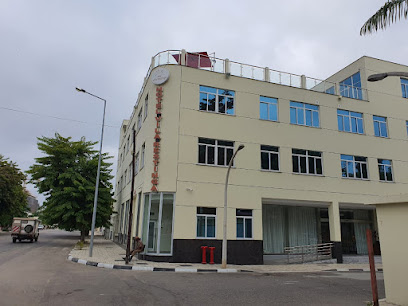
Lobito Port
Experience the serene charm of Lobito Port, a hidden gem along Angola's stunning coastline, rich in history, culture, and delicious seafood.
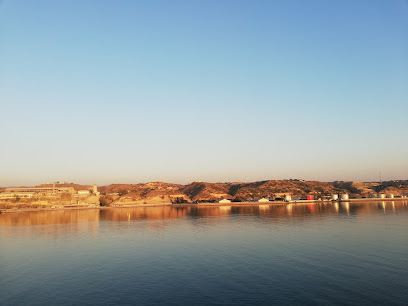
Rotunda BOLAMA
Explore the captivating Rotunda BOLAMA, a historical landmark in Lobito, Angola, showcasing stunning architecture and rich cultural heritage for all travelers.
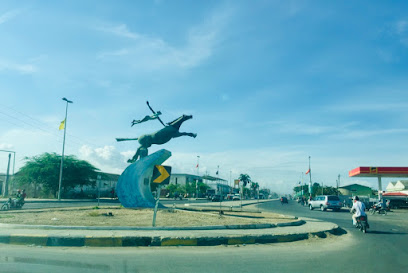
Lobito
Experience the vibrant charm of Lobito, Angola's coastal gem, where stunning beaches and rich culture await every traveler.
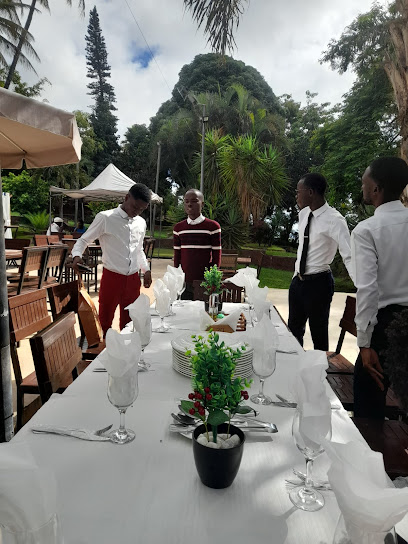
Ponta da Restinga
Discover Ponta da Restinga in Lobito, Angola: a picturesque coastal escape with a historic lighthouse, stunning views, and tranquil beaches.
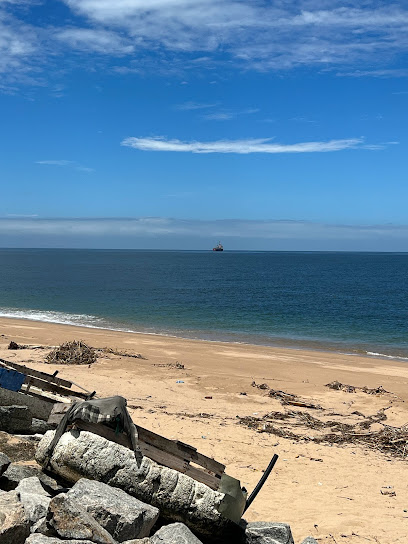
Benguela Lobito
Explore the breathtaking landscapes and vibrant culture of Benguela Lobito, a hidden gem along Angola's stunning coastline.

Lobito Lighthouse
Discover Lobito Lighthouse: A historic beacon offering stunning coastal views and a glimpse into Angola's maritime past.

Unmissable attractions to see
Lobito
Discover Lobito, Angola: A coastal gem with stunning beaches, rich history, and vibrant culture. Explore its port, cuisine, and natural beauty.
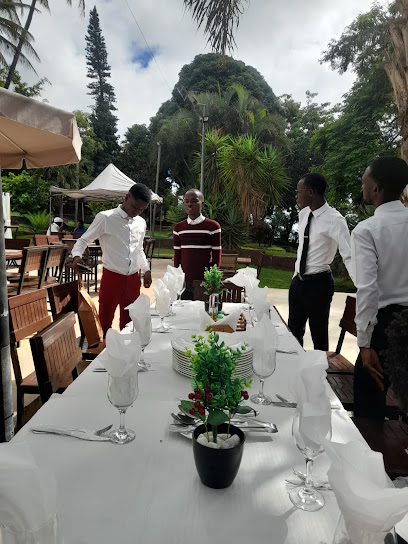
Baia de Lobito
Discover Baia de Lobito: Hike scenic trails, soak in coastal beauty, and experience Angola's natural charm near Lobito.
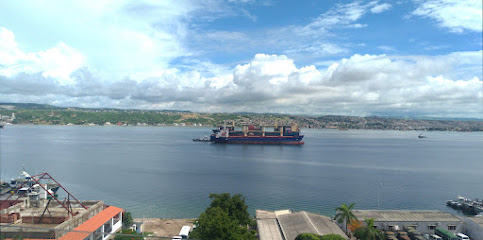
Roda do Amiradouro
Experience breathtaking views of Lobito from Roda do Amiradouro, a scenic overlook perfect for photography and relaxation.

Montanha Cascada, Vimbalambi
Discover the serene beauty of Montanha Cascada in Vimbalambi, Angola – a refreshing escape into nature's tranquil embrace.

Cimitero delle navi
Explore Angola's Cimitero delle Navi in Fonte do Jomba: a hauntingly beautiful ship graveyard where history and nature converge.

Ponta da Restinga
Discover Ponta da Restinga: a tranquil Angolan coast with a historic lighthouse, perfect for nature and photography enthusiasts.
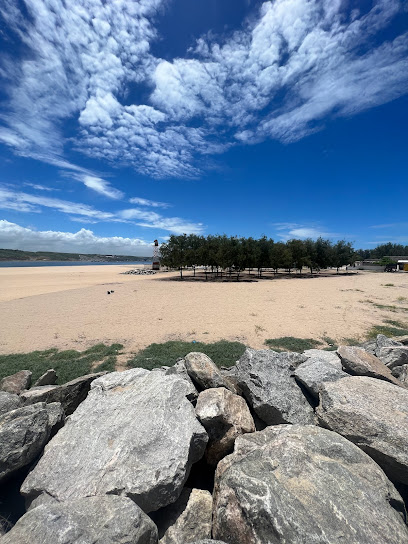
Quinta dos gansos
Discover Quinta dos Gansos in Lobito: A serene escape offering natural beauty and cultural richness for an unforgettable Angolan experience.
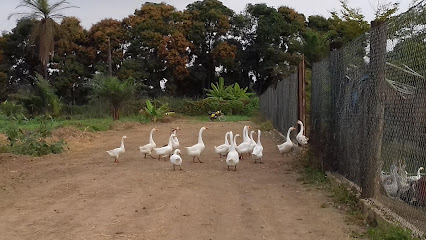
Sereia da Restinga do Lobito
Discover the enchanting Mermaid of Restinga in Lobito, a coastal gem offering beautiful beaches and a vibrant atmosphere.
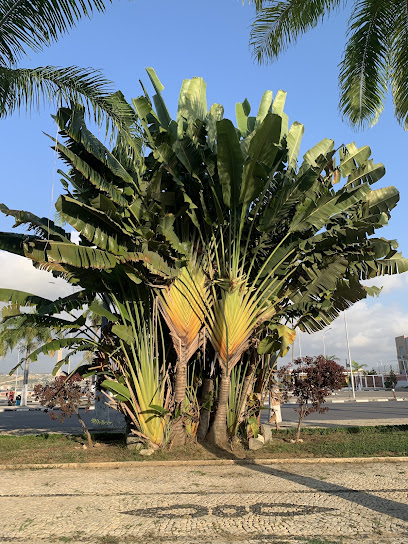
Morro do Sombreiro
Discover panoramic coastal views from Benguela's iconic Morro do Sombreiro, home to a historic lighthouse and adventurous trails.
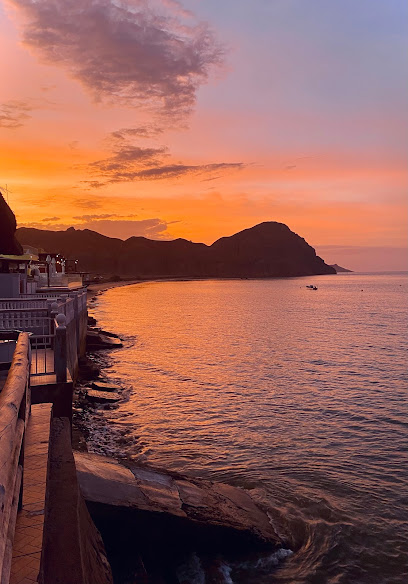
Observar Flamingos
Witness the elegance of flamingos in their natural habitat in Lobito, Angola, a haven for bird watchers and nature enthusiasts.
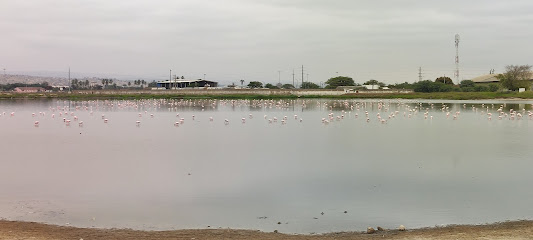
Centro Turístico e Cultural Ondjango
Immerse yourself in Angolan culture at Centro Turístico e Cultural Ondjango, a vibrant hub of art, history, and community in Catumbela.
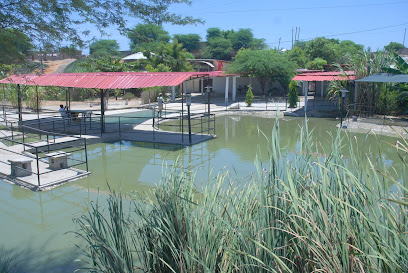
Capreta
Discover Capreta, Lobito: A haven for hikers and nature lovers seeking Angola's breathtaking landscapes and diverse wildlife.

Benguela Lobito
Discover Angola's coastal beauty: Hike scenic trails, immerse in local culture, and enjoy breathtaking Atlantic views in Benguela Lobito.

Bairro do Compão, Lobito
Experience the local culture and coastal charm of Bairro do Compão in Lobito, Angola. Explore markets and enjoy ocean views.
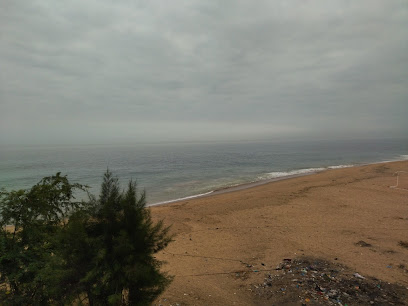
Essential places to dine
Tudo na Brasa
Discover the vibrant culinary scene at Tudo na Brasa - your destination for authentic Angolan and Portuguese flavors in Benguela.
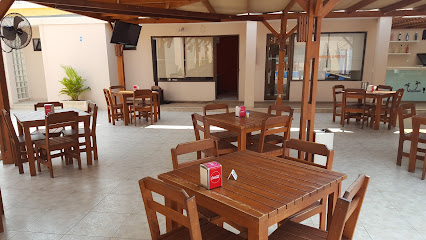
Restaurante Batuk
Experience authentic Angolan flavors at Restaurante Batuk in Lobito - where every meal tells a story.
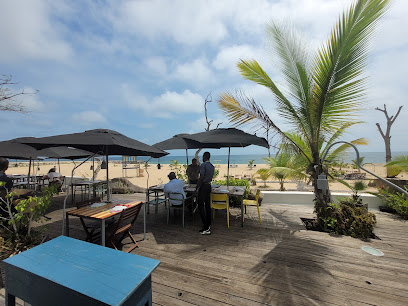
Alfa Beach Bar
Discover the charm of Alfa Beach Bar in Lobito – where local flavors meet stunning ocean views for an unforgettable dining experience.
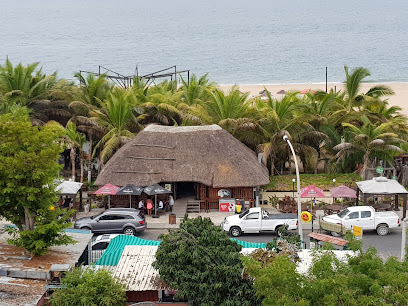
Luna Ocean Club
Discover culinary delights at Luna Ocean Club in Lobito—where fresh seafood meets stunning ocean views for an unforgettable dining experience.
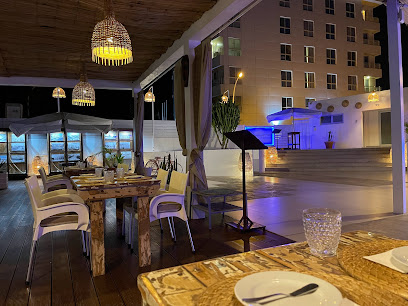
GUNGA
Discover authentic Angolan cuisine at Gunga in Lobito—where delicious flavors meet a vibrant atmosphere.
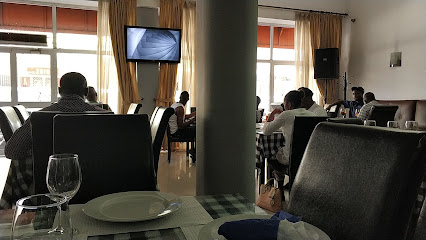
Restaurante D. Bina
Experience the best of Portuguese and Angolan cuisine at Restaurante D. Bina in Lobito, where every dish tells a story.
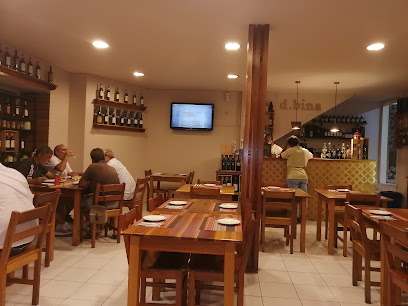
Restaurante 7 Grill
Discover the culinary delights of Restaurante 7 Grill in Catumbela, where local flavors meet international cuisine in a cozy setting.
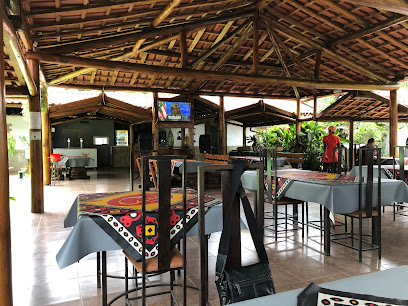
Restaurante Varluz
Experience the rich flavors of Angola at Restaurante Varluz, a must-visit culinary gem in Catumbela offering authentic local dishes.
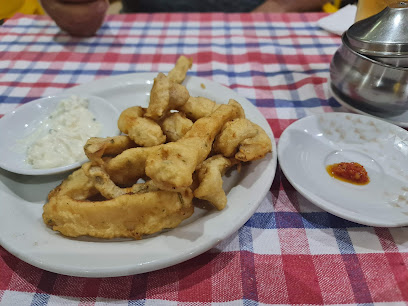
Don Pedro
Experience authentic Angolan cuisine at Don Pedro in Lobito – where flavors meet hospitality for an unforgettable dining adventure.
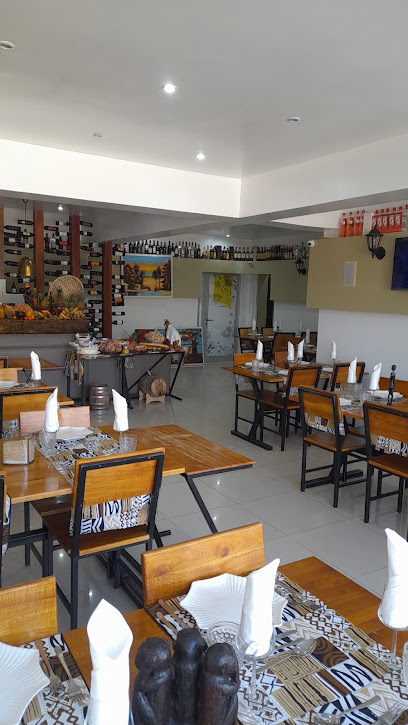
A Cubata do Marcão
Discover authentic Angolan flavors at A Cubata do Marcão in Lobito - where culinary tradition meets contemporary dining.
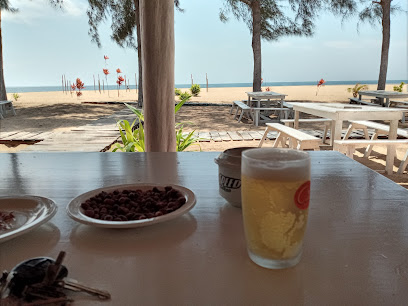
Jango - Bar & Grill
Experience authentic Angolan cuisine at Jango - Bar & Grill in Benguela; where flavors meet warmth and hospitality.
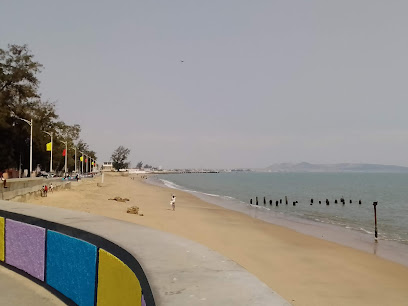
Al-Kamal
Experience the vibrant flavors of Lobito at Al-Kamal Restaurant—where local tastes meet global cuisine.
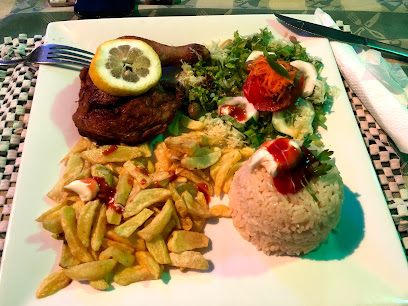
Sol e Mar
Discover Lobito's vibrant culinary scene at Sol e Mar - where local flavors meet unforgettable dining experiences.
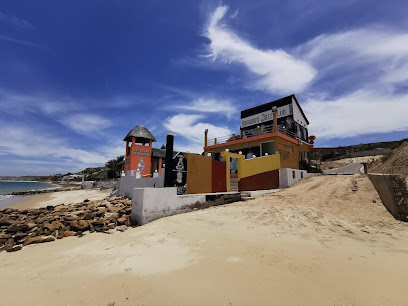
Jardim das Estrelas
Discover authentic Angolan cuisine at Jardim das Estrelas in Lobito – where tradition meets taste in a welcoming atmosphere.
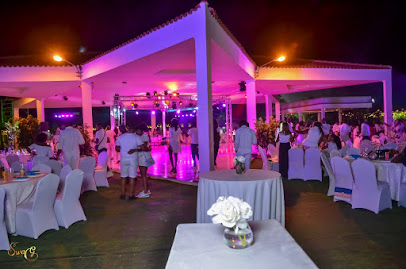
Restaurant Delta
Experience authentic Angolan cuisine at Restaurant Delta in Lobito – where local flavors meet delightful ambiance.
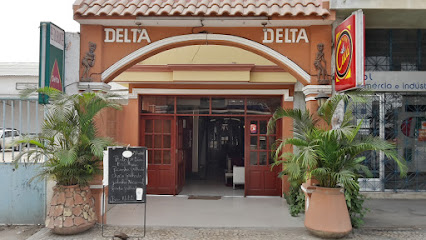
Markets, malls and hidden boutiques
mimi Shopping
Discover local flavors and essentials at Mimi Shopping, the vibrant supermarket in Lobito, Angola.
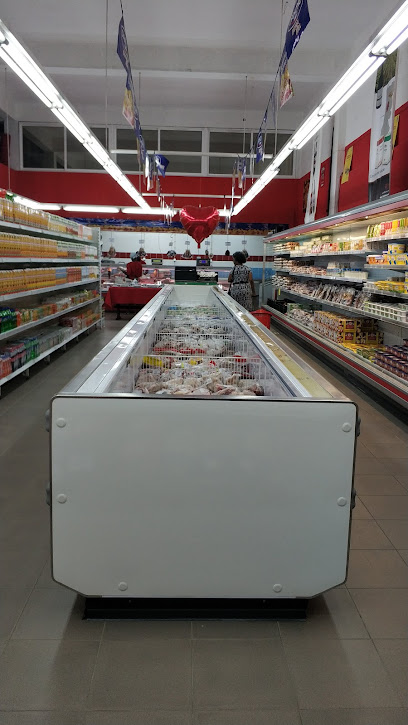
Cymot Angola Lda
Discover quality tools and expert advice at Cymot Angola Lda, the go-to tool store in Lobito for all your home improvement needs.
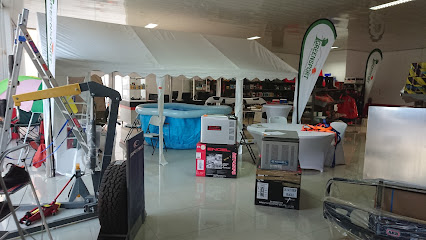
Padaria Angosag
Discover the delightful flavors of Lobito at Padaria Angosag, where fresh-baked goods and local specialties await every visitor.
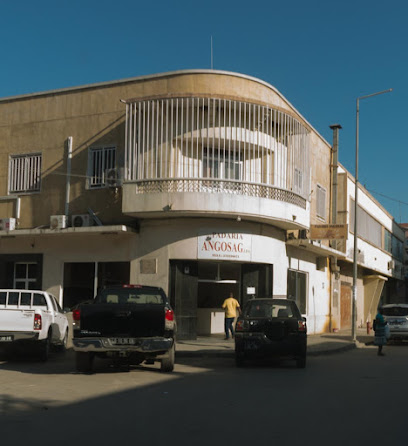
Samirana Comercial Lobito
Discover stylish clothing and local flair at Samirana Comercial Lobito, a top clothing store in Angola’s vibrant coastal city.
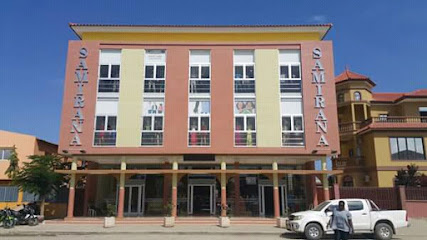
ZAP
Discover the essence of Lobito at ZAP, a vibrant store offering local crafts, delicacies, and authentic Angolan experiences.

J.Fumba Comercial, A Garrafeira
Explore the rich flavors of Angolan wines at J.Fumba Comercial, the ultimate destination for wine enthusiasts in Lobito.

Casuarina's
Experience the perfect blend of culinary delights and stylish decor at Casuarina's in Lobito, a must-visit destination for every traveler.
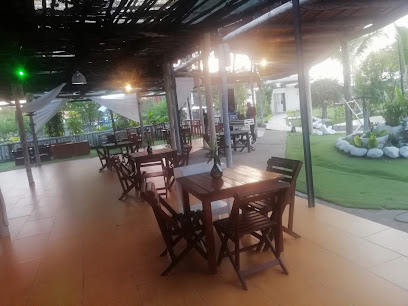
looktchiwa
Explore Looktchiwa Boutique in Lobito for unique Angolan crafts and contemporary fashion, a must-visit for every traveler seeking authentic style.

DTJ, COMÉRCIO A RETALHO.
Immerse yourself in Lobito's shopping culture at DTJ, Comércio a Retalho - your go-to store for local goods and unique souvenirs.
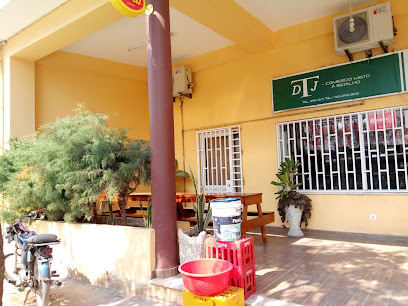
Kompra.ki
Discover unique Angolan crafts and international goods at Kompra.ki, the ultimate shopping spot in Lobito for every traveler.

PEP Angola Lobito Cbd - New Look
Explore PEP Angola Lobito for affordable family fashion, offering stylish clothing for men, women, and children in a vibrant shopping atmosphere.

PEP Angola Lobito 1 Shoprite Centre
Explore stylish clothing options for the whole family at PEP Angola Lobito, a vibrant shopping destination in the heart of Lobito.
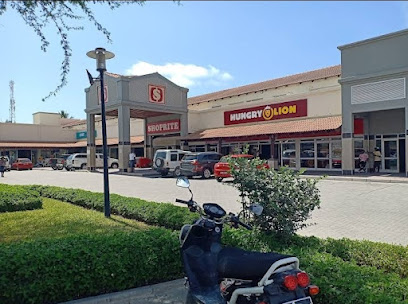
Footzone-Lobito
Discover Footzone-Lobito, a premier sporting goods store in Lobito, Angola, offering an extensive range of equipment and apparel for outdoor enthusiasts.
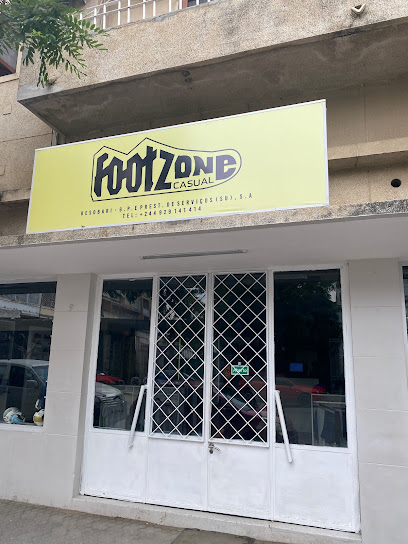
princesa lobito
Explore Princesa Lobito, a charming home goods store in Lobito, offering unique local crafts and essentials for a perfect Angolan experience.

Casa Da Emigraça Francisco
Discover unique vintage fashion at Casa Da Emigraça Francisco in Lobito, where every piece tells a story and nostalgia comes alive.

Essential bars & hidden hideouts
Alfa Beach Bar
Discover the lively atmosphere and delicious cuisine at Alfa Beach Bar in Lobito, where the ocean meets local culture.
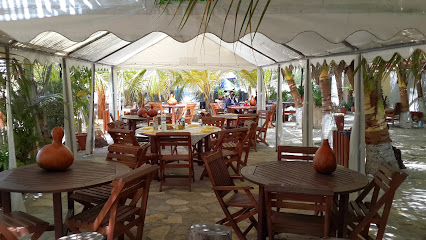
Luna Ocean Club
Experience exquisite dining at Luna Ocean Club, Lobito's premier restaurant offering stunning ocean views and a diverse menu of delicious local and international dishes.
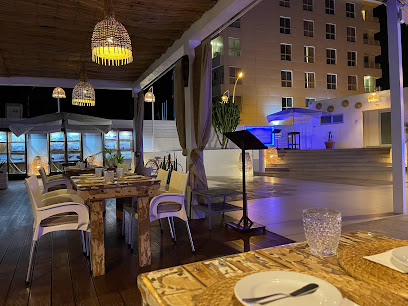
Majestic Bar Café
Discover the lively Majestic Bar Café in Lobito, where local culture meets vibrant nightlife and delicious drinks await.
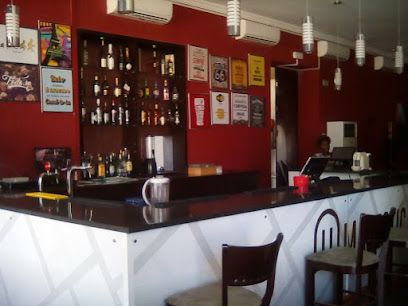
Bar do Vá
Discover the vibrant nightlife at Bar do Vá in Lobito, where local culture meets a lively atmosphere and delightful drinks.
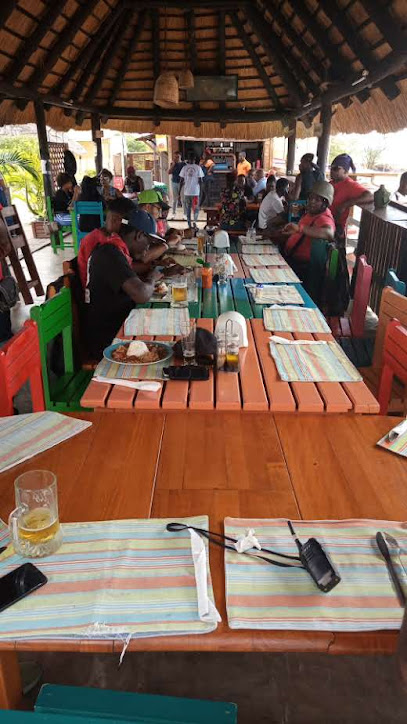
Angelo’s Restaurante & Piano Bar
Experience the essence of Lobito at Angelo's Restaurante & Piano Bar, where family-friendly dining meets live music and delectable cuisine.
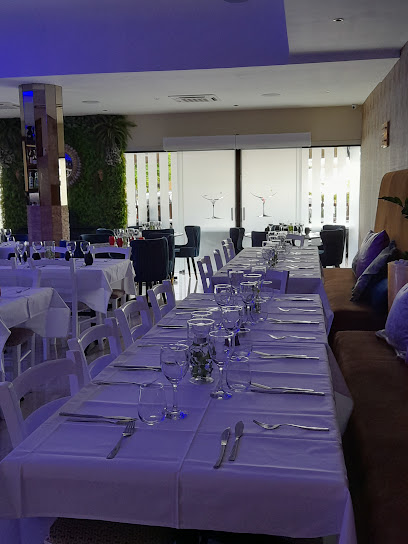
Bar do Camilo
Experience the vibrant atmosphere of Bar do Camilo in Lobito, where local culture meets refreshing drinks and lively conversations.
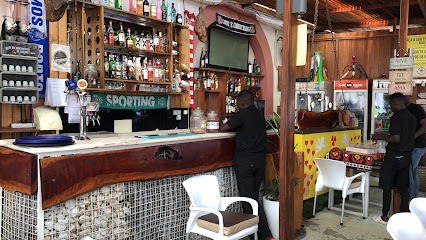
Rooftop
Experience breathtaking views and a vibrant atmosphere at Rooftop Bar in Lobito, the perfect spot for relaxation and socializing.
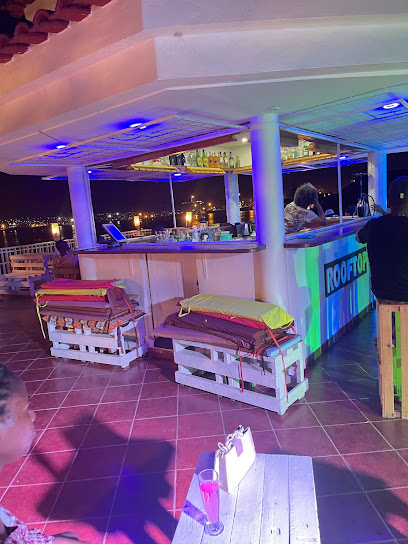
Óscar Bar
Experience the vibrant culture of Lobito at Óscar Bar, where local flavors and a lively atmosphere create unforgettable memories in Angola.

Bar Combinado
Experience the local charm and vibrant atmosphere of Lobito at Bar Combinado, a hidden gem for tourists seeking authentic Angolan culture.
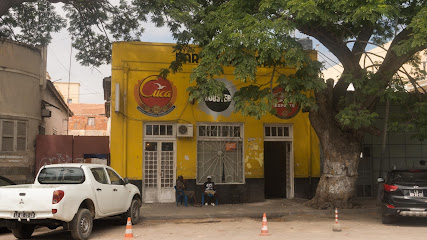
Natalia Show Bar
Discover the lively nightlife of Lobito at Natalia Show Bar, where vibrant performances and a welcoming atmosphere await.

mado bar
Discover the vibrant atmosphere of Mado Bar in Lobito, where locals and tourists meet over refreshing drinks and unforgettable experiences.
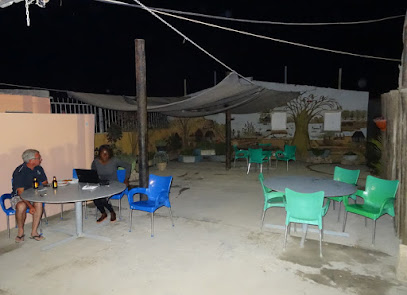
Bar Esplanada Palma Real
Discover the essence of Angolan cuisine at Bar Esplanada Palma Real, a vibrant restaurant in Lobito that promises a delightful dining experience.
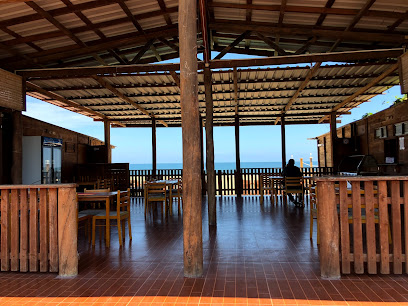
Ponto G Pub
Immerse yourself in the lively atmosphere of Ponto G Pub in Lobito, where local drinks and friendly vibes await every visitor.

Snack Bar Charles
Experience the lively local culture at Snack Bar Charles in Lobito, where refreshing drinks and friendly faces await in a vibrant atmosphere.
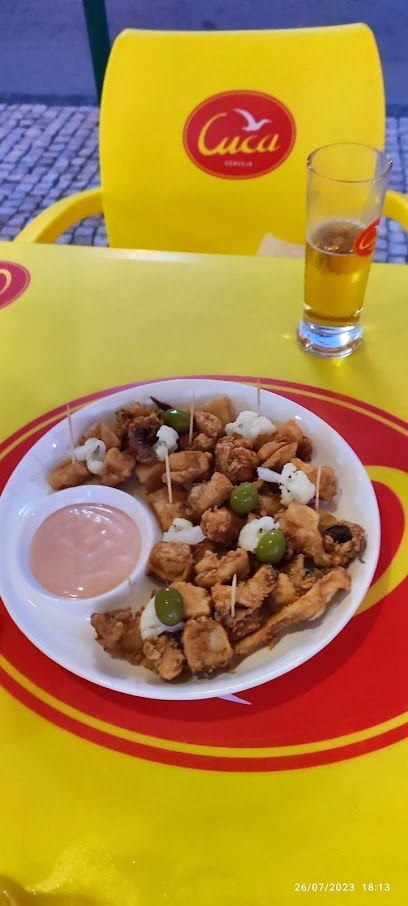
Bar OAconchego
Experience the authentic taste of Angola at Bar OAconchego, a cozy restaurant in Lobito serving traditional dishes in a welcoming atmosphere.

Local Phrases about Lobito Bay
-
- HelloOlá
[oh-LAH] - GoodbyeAdeus
[ah-DAY-oos] - YesSim
[seem] - NoNão
[now] - Please/You're welcomePor favor/De nada
[por fah-VOHR/deh NAH-dah] - Thank youObrigado(a)
[oh-bree-GAH-doo(ah)] - Excuse me/SorryCom licença/Desculpe
[kohm lee-SEN-sah/deh-SKOO-py] - How are you?Como está?
[KOH-moo ehs-TAH] - Fine. And you?Bem. E você?
[bane/eh voh-SAY] - Do you speak English?Fala inglês?
[FAH-lah een-GLEHS] - I don't understandNão entendo
[now ehn-TEN-doo]
- HelloOlá
-
- I'd like to see the menu, pleaseGostaria de ver o menu, por favor
[goh-stah-REE-ah deh vehr oo MEH-noo/por fah-VOHR] - I don't eat meatNão como carne
[now KOH-moo KAH-rneh] - Cheers!Saúde!
[sah-OO-deh] - I would like to pay, pleaseGostaria de pagar, por favor
[goh-stah-REE-ah deh pah-GAHR/por fah-VOHR]
- I'd like to see the menu, pleaseGostaria de ver o menu, por favor
-
- Help!Ajuda!
[ah-JOO-dah] - Go away!Vai embora!
[vah-ee ehm-BOH-rah] - Call the Police!Chama a Polícia!
[SHA-mah ah poh-LEE-see-ah] - Call a doctor!Chama um médico!
[SHA-mah oom MEH-dee-koo] - I'm lostEstou perdido(a)
[ehs-TOH pehr-DEE-doo(ah)] - I'm illEstou doente
[ehs-TOH doo-EHN-teh]
- Help!Ajuda!
-
- I'd like to buy...Gostaria de comprar...
[goh-stah-REE-ah deh kohm-PRAR] - I'm just lookingEstou só a ver
[ehs-TOH soh ah vehr] - How much is it?Quanto custa?
[KWAHN-too KOOSH-tah] - That's too expensiveIsso é muito caro
[EE-soh eh MOO-ee-toh KA-roo] - Can you lower the price?Pode baixar o preço?
[POH-deh BAI-shahr oo PREH-soo]
- I'd like to buy...Gostaria de comprar...
-
- What time is it?Que horas são?
[keh OH-rahz sah-oh] - It's one o'clockÉ uma hora
[eh OO-mah OH-rah] - Half past (10)Meia (dez)
[MEH-yah (dehz)] - MorningManhã
[mah-NYAH] - AfternoonTarde
[TAHR-deh] - EveningNoite
[NOY-teh] - YesterdayOntem
[ohn-TEHM] - TodayHoje
[OH-zheh] - TomorrowAmanhã
[ah-mah-NYAH] - 1Um
[oom] - 2Dois
[doyz] - 3Três
[trehz] - 4Quatro
[KWAH-troo] - 5Cinco
[SEENG-koo] - 6Seis
[sayz] - 7Sete
[SEH-teh] - 8Oito
[OY-too] - 9Nove
[NOH-veh] - 10Dez
[dehz]
- What time is it?Que horas são?
-
- Where's a/the...?Onde está o/a...?
[OHN-deh ehs-TAH oh/ah] - What's the address?Qual é o endereço?
[kwahl eh oo ehn-DREH-soo] - Can you show me (on the map)?Pode mostrar-me (no mapa)?
[POH-deh moh-SHTR-meh/noo MAH-pah] - When's the next (bus)?Quando é o próximo (autocarro)?
[KWAHN-doo eh oo PROH-ksee-moo/ow-toh-KAH-roo] - A ticket (to ....)Um bilhete (para ....)
[oom bee-YEH-teh/PAH-rah]
- Where's a/the...?Onde está o/a...?
History of Lobito Bay
-
Lobito Bay, situated along the Atlantic coast of Angola, has been inhabited by various indigenous tribes for centuries. The area was originally populated by the Ovimbundu people, who engaged in fishing, agriculture, and trade long before European explorers arrived. The rich natural resources of the bay provided sustenance and supported a thriving community.
-
In the late 15th century, Portuguese explorers arrived on the shores of Lobito Bay as part of their broader expeditions along the West African coast. The bay's strategic location and natural harbor made it an attractive site for maritime activities. By the 17th century, the Portuguese had established a foothold in the region, integrating Lobito Bay into their colonial empire and initiating trade routes that would define the area's economic landscape for centuries.
-
The turning point in Lobito Bay's history came in the early 20th century with the construction of the Port of Lobito. Completed in 1928, the port was a monumental infrastructure project that transformed the bay into a vital maritime hub. Designed to facilitate the export of Angola's natural resources, especially minerals from the interior, the port quickly became one of the most important on the African continent, boosting local and regional economies.
-
The establishment of the Benguela Railway, which connected Lobito Bay to the mineral-rich regions of the Congo and Zambia, further enhanced the area's significance. Completed in 1929, the railway provided a critical link between the interior of Africa and the Atlantic Ocean, facilitating the export of copper, cobalt, and other valuable minerals. This railway not only boosted Lobito Bay's economic importance but also positioned it as a key player in the global trade network.
-
Angola gained independence from Portugal in 1975, marking the beginning of a tumultuous period for Lobito Bay. The ensuing civil war, which lasted until 2002, had a profound impact on the region. Infrastructure, including the port and railway, suffered significant damage, and the local population faced immense hardships. Despite these challenges, Lobito Bay remained a symbol of resilience and played a crucial role in the country's post-war reconstruction efforts.
-
Today, Lobito Bay stands as a testament to Angola's rich history and cultural diversity. The port has been modernized and expanded, continuing to serve as a vital gateway for international trade. The area is also a burgeoning tourist destination, attracting visitors with its stunning beaches, historical landmarks, and vibrant local culture. Efforts to preserve and promote the heritage of Lobito Bay ensure that its storied past remains an integral part of its present and future.
Lobito Bay Essentials
-
Lobito Bay is located on the Atlantic coast of Angola. The nearest international airport is Catumbela Airport (CBT), which is approximately 15 kilometers from Lobito. From the airport, you can take a taxi or arrange for airport transfer services to Lobito Bay. Alternatively, you can fly into Quatro de Fevereiro Airport (LAD) in Luanda, the capital of Angola, and take a domestic flight or a scenic train journey to Lobito. The train journey from Luanda to Lobito takes around 8-10 hours and provides a unique view of the Angolan landscape.
-
Within Lobito, you can get around using local taxis, which are the most common form of transportation. There are also minibuses (candongueiros) that operate on fixed routes and are more affordable, though they can be crowded. Renting a car is an option if you prefer more flexibility, but be aware that driving conditions can be challenging due to varying road quality. For short distances, walking is a pleasant way to explore the bay area.
-
The official currency in Angola is the Angolan Kwanza (AOA). Credit cards are accepted in most hotels, upscale restaurants, and large shops, but it is advisable to carry cash for smaller establishments and markets. ATMs are available in Lobito, but they can sometimes be unreliable, so it's wise to withdraw enough cash in larger cities or airports before heading to Lobito.
-
Lobito Bay is generally safe for tourists, but it is important to take standard precautions. Avoid walking alone at night, especially in poorly lit or unfamiliar areas. Some neighborhoods in the outskirts of Lobito have higher crime rates, so it is best to stick to well-known and frequented areas. Keep your valuables secure and be vigilant in crowded places. If you need assistance, local police and tourist information centers can provide help.
-
In case of emergency, dial 113 for police assistance, 112 for medical emergencies, and 115 for fire emergencies. The main hospital in Lobito is the Hospital Geral de Benguela, which provides medical services. It is recommended to have travel insurance that covers medical emergencies. For minor health issues, pharmacies are available where you can purchase over-the-counter medications.
-
Fashion: Do dress modestly, especially when visiting religious sites or local communities. Avoid wearing very revealing clothing. Religion: Do respect local customs and traditions. When visiting churches, dress conservatively and avoid disrupting services. Public Transport: Do be patient when using public transport, as it can be crowded and schedules may be irregular. Don't eat or drink on public transport. Greetings: Do greet people with a handshake. A warm smile and maintaining eye contact are appreciated. Eating & Drinking: Do try local dishes and accept food offerings graciously. Don't refuse hospitality, as it is considered impolite.
-
To experience Lobito Bay like a local, visit the local markets where you can buy fresh seafood and traditional Angolan crafts. Engage with locals, as they are often friendly and eager to share their culture. Don't miss a visit to the beautiful Praia da Restinga, a popular beach area with vibrant nightlife. For a unique experience, take a boat tour of the bay to see the stunning coastline and marine life. Also, try the local dish 'Moamba de Galinha,' a flavorful chicken stew that is a staple in Angolan cuisine.
Nearby Cities to Lobito Bay
-
Things To Do in Uíge
-
Things To Do in Oshakati
-
Things To Do in Ongwediva
-
Things To Do in Cabinda
-
Things To Do in Etosha Village
-
Things To Do in Tsumeb
-
Things To Do in Outjo
-
Things To Do in Rundu
-
Things To Do in Otjiwarongo
-
Things To Do in Omaruru
-
Things To Do in Karibib
-
Things To Do in Usakos
-
Things To Do in Okahandja
-
Things To Do in Swakopmund
-
Things To Do in Walvis Bay







